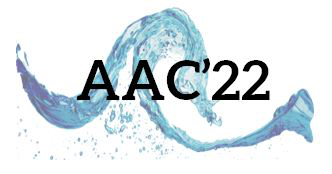Speaker
Description
Laser plasma accelerators can generate acceleration gradients of 10~100 GeV/m and have delivered multi-GeV electron beams. In a recent experiment, we demonstrated electron acceleration up to 5 GeV in a 20-cm plasma waveguide, formed via self-waveguiding pulses in a low density hydrogen gas jet [1,2]. The long optical guiding of multi-100 TW pulses causes complex evolution of the laser driver envelope and spectrum, which entails further study to improve the accelerated electron bunch quality. In this work we investigate numerically the additional dephasing due to pump depletion during laser propagation in a plasma waveguide. We propose ways to alleviate this effect by pulse shaping and present numerical simulations validating the proposed methods.
[1] B. Miao et al., Multi-GeV electron bunches from an all-optical laser wakefield accelerator, Phys. Rev. X 12, 031038.
[2] L. Feder et al., Self-waveguiding of relativistic laser pulses in neutral gas channels, Phys. Rev. Res. 2, 043173 (2020).
Acknowledgments
This work was supported by the US Department of Energy (DESC0015516, LaserNetUS DE-SC0019076 / FWP#SCW1668, and DE-SC0011375), and the National Science Foundation (PHY1619582 and PHY2010511).

